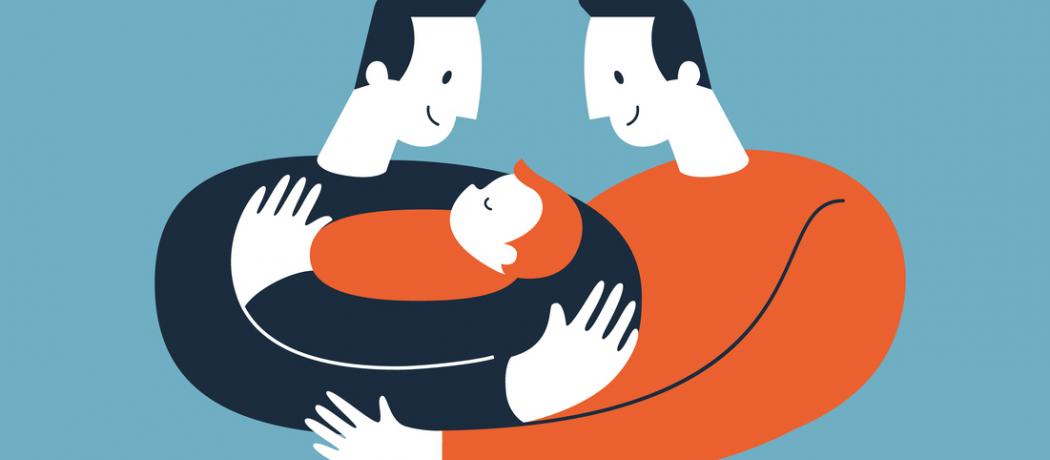While celebrating Mother’s Day 108 years ago, Sonora Smart Dodd of Spokane wanted to designate a special day for her father. Mr Dod raised Sonora from newborn to adulthood after Mrs Dod died soon after Sonora’s birth. The idea of honoring her father, and all fathers for their love and care, caught on and a special day in June of each year was set aside for Father’s Day.
This year I will spend part of this special day reminiscing about my father, who died in his sleep 50 years ago in June 1968. In addition, however, I am thinking of expanding the idea of Father’s Day into an appreciation of fathers, plural, as I am planning to raise a glass of my finest to celebrate all two-dad parent groups.
Between 2011 and 2016 the number of same-sex couples in Canada rose by 13% to 73 000 (35 000 female and 38 000 male sex couples). According to the 2016 Canada Census, 8000 male couples were raising children as two dads. In that year most of the two-dad families were living in the large metropolitan areas of Toronto, Montreal, and Vancouver. The census data does not show how many children were adopted or carried the genes of one of the two dads, either by natural or artificial insemination by way of a surrogate mother, or a previous heterosexual relationship.
Research on life with two dads is scarce, but available studies suggest that two-dad households adhere to traditional parenting roles. They love their children just like most parents do. One parent tends to be the primary earner, while the other handles most of the caregiving and household chores. Households with two dads working full-time rely on day care facilities, babysitters, and housekeepers, much like heterosexual couples. Parenting responsibilities tend to be shared more on the basis of skills and abilities rather than on culturally constructed notions of being motherly or fatherly.
With the passage of time there is now a growing cohort of children of same-sex parents old enough to yield preliminary data indicating that they are not markedly different from children of heterosexual parents. Entering adolescence they show no evidence of increased incidence of psychiatric disorders, they have just as many friends as other children do, and neither boys nor girls are more likely to suffer from gender confusion or identify themselves as gay or lesbian. Of interest is that two-dad parents appear to be more civically engaged parents. Many become involved as classroom parents, voluntarily assisting teachers, become active in PTA and related activities, support local museums or libraries, or do volunteer work for social justice groups.
As I am going to raise my glass to families with two dads on Fathers’ Day, I will also wish for more in-depth studies about the effects of same-sex parenting. I believe there is a lesson here for all parents.
—George Szasz, CM, MD
Additional reading
Census in brief: Same-sex couples in Canada 2016. Statistics Canada. Accessed 12 June 2018. www12.statcan.gc.ca/census-recensement/2016/as-sa/98-200-x/2016007/98-200-x2016007-eng.cfm
How families with 2 dads raise their kids. The Conversation. Accessed 12 June 2018. https://theconversation.com/how-families-with-2-dads-raise-their-kids-77386
The Evolving Father. Psychology Today. Accessed 12 June 2018. www.psychologytoday.com/us/blog/the-evolving-father
This posting has not been peer reviewed by the BCMJ Editorial Board.


